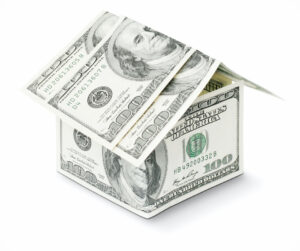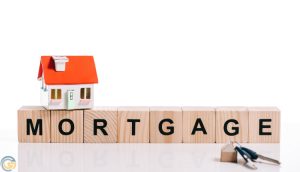This Article Is About How Credit Scores Affect Mortgage Rates When Locking Loan
Mortgage Rates have dropped 0.25% after the sudden surge in recent weeks. Many borrowers in recent weeks were alarmed due to the sudden surge of rates. Now is the opportunity to lock in rates. How much lower will rates go? Nobody has a crystal ball. Today’s rates are now at 3.25% on a 30-year fixed-rate mortgage for borrowers. In this article, we will discuss and cover today’s rates and how credit scores affect rates when locking loans.
The Impact Of Credit Scores On Mortgage Rates
Credit scores do have an impact on what mortgage rates borrowers get, especially with conventional loan programs. Credit scores are also the main factor used for qualification purposes. Borrowers must meet minimum credit score requirements to qualify for a specific mortgage loan program. For example, the minimum credit score required to qualify for a 3.5% down payment FHA-insured mortgage loan is 580. To qualify for an FHA loan that requires a minimum down payment of 10%, credit scores need to be between 500 and 579. VA Loans does not have a minimum credit score requirement. To qualify for a conventional loan minimum credit score needs to be 620. For condotel unit and non-warrantable loan programs, credit scores need to be at least 680.
Rates On Jumbo Loans
To qualify for a jumbo mortgage, the minimum credit score needs to be at least 700:
- Gustan Cho Associates Mortgage Group has Non-QM jumbo loan programs with credit scores down to 500 FICO
- Gustan Cho Associates also offers traditional 90% LTV jumbo mortgages with credit scores down to 660 FICO
- Having good credit scores are not just to meet minimum qualification guidelines
- Credit scores can have a great impact on what mortgage rate borrowers get
- How Credit Scores Affect Mortgage Rates is poor credit scores mean higher mortgage interest rates
Jumbo loans are considered riskier loans. Therefore credit and income requirements are higher than traditional conforming loan programs.
Conventional Mortgage Rates And Credit Scores
To get the top and best mortgage rates on conventional loans, a credit score of 740 or higher is required:
- For every 20 point drop, the mortgage rate will be higher
- The higher rate a lender charges due to a lower credit score are called price adjustments
- Normally, with conventional loans, there are price adjustments for every 20 points
- FHA loans are not as credit-sensitive as conventional loans unless credit score falls below 600
- To get the best FHA mortgage rates, borrowers need is a credit score of 680 or higher
- With FHA loans, the mortgage rate will be the same whether the credit score is 680 or 740
- However, if credit scores fall below 640 mortgage rates will be higher
If credit scores are below 600 borrowers can expect to pay over 1.0% in mortgage rate higher than if credit scores were at 640 or higher.
How Credit Scores Affect Mortgage Rates And Pricing

Mortgage lenders will pull credit from the three giant credit reporting agencies when borrowers apply for a mortgage:
- Transunion
- Experian
- Equifax
Each credit bureau will have a specific credit score for each consumer. Mortgage lenders will use the middle credit score to qualify a mortgage loan applicant.
Credit Scores Used By Lenders To Qualify Borrowers
For example, let’s assume a borrower has the following credit scores:
- Transunion credit score is 600
- Experian credit score is 650
- Equifax credit score is 700
The 650 Experian middle score will be used. How Credit Scores Affect Mortgage Rates is that credit score will be the determinant of whether borrowers qualify for a particular mortgage loan program. How Credit Scores Affect Mortgage Rates is the credit score that will be the determining score for pricing on mortgage rates.
How Credit Scores Affect Rates With Lenders
Credit scores are the biggest factor in determining rates by mortgage companies. Pricing hits or loan level pricing adjustments are based on credit scores. Credit scores will have a range between 300 and 850. How Credit Scores Affect Mortgage Rates is the higher the credit scores, the lower borrowers’ mortgage rates. A credit score of over 700 is considered a good risk borrower. Anyone with a credit score of 620 or lower is considered a high-risk borrower. Borrowers with credit scores below 600 FICO will get higher mortgage rates and may have to pay discount points.
How Are Credit Scores Broken Down
The credit score is derived from various factors:
- 35% of the credit score will be derived by overall payment history and how timely consumers are in paying bills
- 30% of credit score consist of the balance consumers owe creditors compared to the credit limit
- 15% of credit score consists of the longevity of overall credit history and how long consumers had active credit accounts
- The final 10% that make up credit score is the mixture of credit consumers have
- For example, credit scores will be higher if consumers have installment loans, revolving credit, mortgage loans, automobile loans, and personal loans
Credit bureaus want consumers to have a variety of credit mixes versus just one type of credit such as just having credit cards and no auto loans, mortgage loans, student loans, etc.
How Lenders View Credit Scores Versus Mortgage Rates
Mortgage lenders view that a person’s credit score reflects a person’s risk factor. Lenders believe a person with a higher credit score is financially more responsible than a person with a lower credit score. Higher credit score borrowers pose a less risk factor and a lesser chance of default.
Credit Scores Can Be Improved
Buyers planning on buying a home in the near future, please consult with a mortgage banker or mortgage broker and get qualified. For home buyers with lower credit scores, there might be some quick fixes to improve credit scores in a short period of time. People who have their credit cards maxed out normally can boost their credit scores almost right away. This can be done by paying down their credit card balances. Others might not have enough active credit or no re-established credit after a period of bad credit or after a bankruptcy or foreclosure. Getting three to five secured credit cards may do the trick. Each secured credit card can boost a person’s credit score by 20 or more points. Yet others may have errors on their credit report. May need to dispute the derogatory if borrowers have proof derogatory is not theirs or the creditor and/or the credit reporting agency may have misreported the derogatory information. This can be done with a rapid rescore.
Related> How to boost your credit scores
Related> Improving your credit scores to qualify for a mortgage








